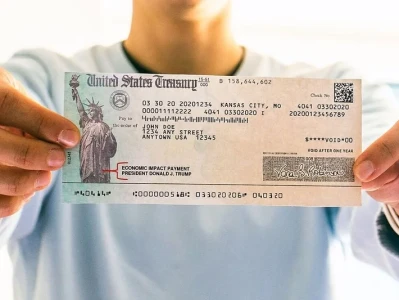$2,000 IRS Stimulus Check in November 2025? Don't Bet on It
The internet's buzzing about a potential $2,000 IRS stimulus check supposedly hitting bank accounts this November. Social media's lit up with claims of direct deposits, and promises of "guaranteed payments." But before you start planning that vacation (or, more realistically, paying off overdue bills), let's inject a dose of reality. No new stimulus or refund program has been authorized by Congress or the IRS. Officials are pretty clear on this: these are likely scams.
The Stimulus Mirage
The claims are specific: $1,390, $1,702, or even a full $2,000 landing in your account. Where do these numbers come from? It's tough to say. The articles point to social media chatter, which, as we all know, is a reliable source of… well, nothing verifiable. The IRS has even issued warnings, flagging these "guaranteed payment" promises as phishing attempts. They're after your personal and banking information, not trying to pad your bank account.
And this is the part of the report that I find genuinely puzzling. Why these specific amounts? Did someone just pull them out of thin air, or is there some twisted logic behind it? It’s hard to say, but the lack of any official backing should be a massive red flag. Is a $1,702 stimulus check coming? Latest news on claims of 2025 payments.
To date, we've had three federal stimulus checks linked to the pandemic: $1,200, $600, and $1,400. The deadline to claim the last one—the $1,400 payment—was April 15, 2025. Any unclaimed funds? Back to the Treasury. So, the idea of a surprise $2,000 check, almost a year after the final deadline, seems… optimistic, to put it mildly.
The Ghosts of Stimulus Past
There have been other proposals floated. Remember the "DOGE dividend," where President Trump suggested using tariff revenue to fund taxpayer rebates? Or Senator Hawley's American Worker Rebate Act of 2025, proposing checks between $600 and $2,400? Rep. Ro Khanna even suggested a $2,000 stimulus to offset tariffs for families making under $100,000. All talk, no action. These ideas never made it through Congress.
Tariff revenue as a source of stimulus? It's an interesting thought. The problem is that tariffs are, in essence, a tax on consumers. Giving some of that money back as a stimulus check is like taking money out of your left pocket and putting it in your right—with a significant administrative overhead, of course.

Several states have issued "inflation relief checks," but these are state-level initiatives, not federal stimulus. New York, for example, sent out checks to residents who paid higher sales taxes due to inflation. Pennsylvania, Georgia, and Colorado did something similar, calling them "rebate checks." These programs have varying eligibility criteria and payment amounts.
The IRS offers a "Where’s My Refund" tool on their website (irs.gov/refunds). It's updated daily. You'll need your Social Security number, filing status, and refund amount. Most refunds arrive within 21 days of acceptance via direct deposit. State refunds can be tracked through individual Department of Taxation websites. It's the safest way to track your refund status.
Officials are very clear: avoid third-party links or messages promising fast cash. Any request for bank details, fees, or personal data is a major red flag. Always confirm updates through official government websites.
Is It Just Wishful Thinking?
So, what's the real story? Why are these rumors so persistent? It's simple: people are hurting. Inflation is still a factor. The cost of living is up, and wages haven't kept pace. The idea of a surprise $2,000 check is appealing. It's a lottery ticket, a glimmer of hope in a tough economic climate. But hope isn't a strategy. And in this case, it's almost certainly a scam.
Fool Me Once…
The takeaway here? Temper your expectations. Unless Congress passes new legislation (like the American Worker Rebate Act, which, let's be honest, isn't looking likely), don't expect additional federal relief. The best approach is to stay informed, be skeptical of online claims, and rely on official sources for information. And, of course, keep an eye on your bank account. Just don't expect a surprise $2,000 deposit.
Smoke and Mirrors
The stimulus check mirage is a dangerous distraction. Focus on what you can control: managing your finances, avoiding scams, and staying informed.






